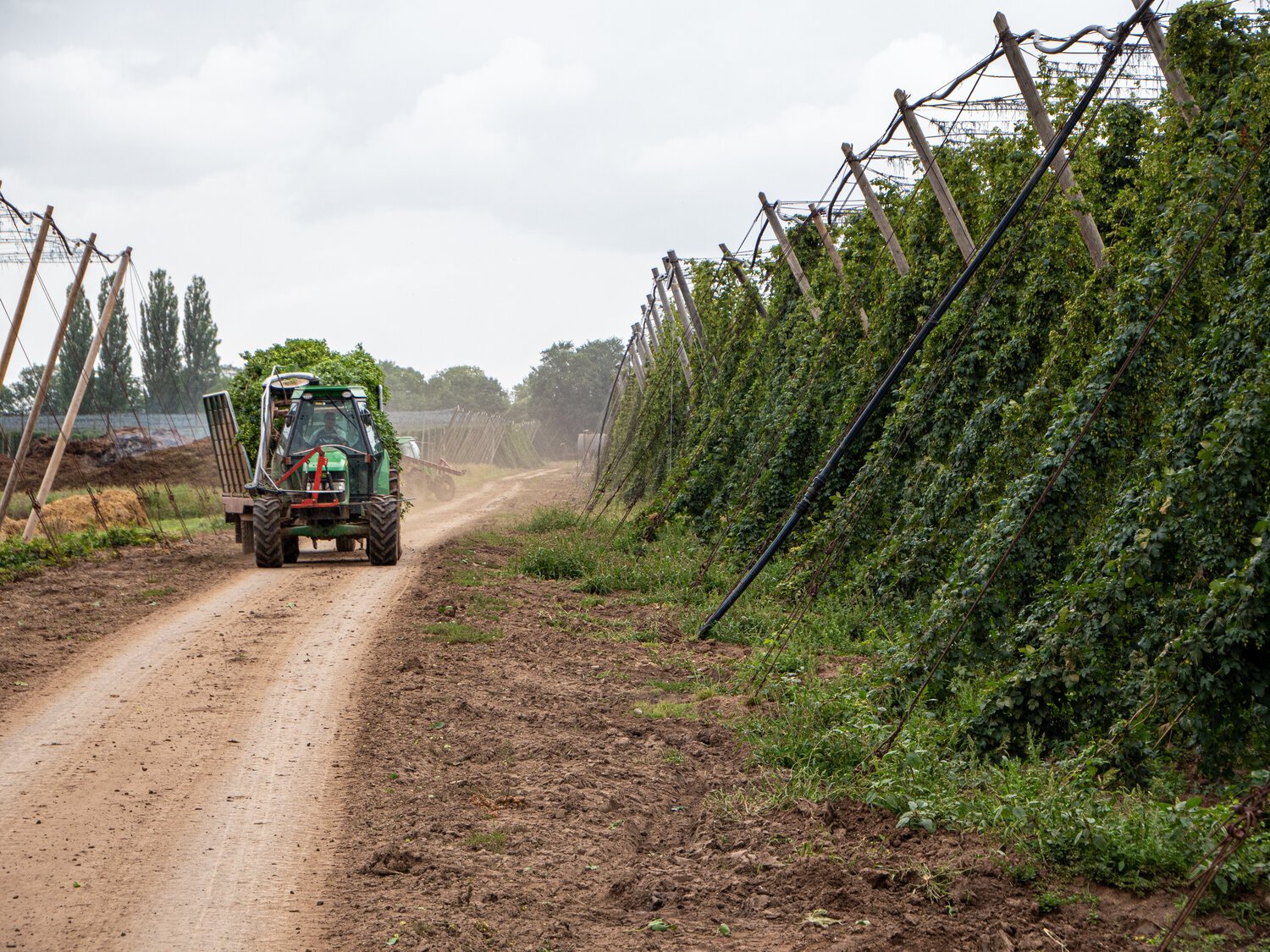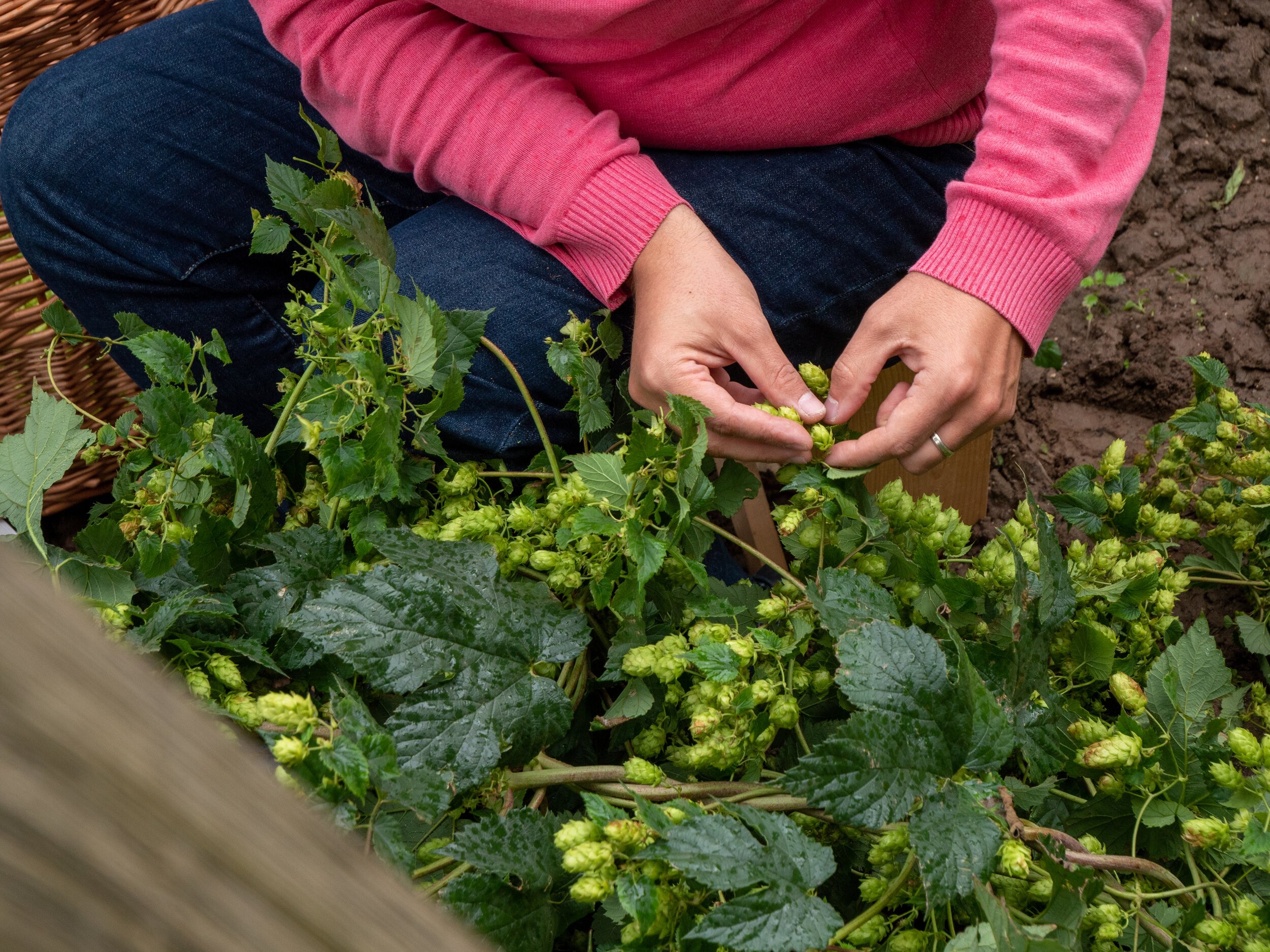Apr 6, 2023
Hop to it! AI is Strengthening Climate-Resilient Beer Production

Editor’s Note: This was our first announcement about Agritecture’s climate-resilient AgTech project in the Czech Republic in partnership with Microsoft and Asahi.
Look down at your pint of beer. What do you really know about it?
Do you know where it was made or how? Do you know what the key ingredient for brewing that perfect beer is? That the drink was traditionally brewed by women in Ancient Egypt? Or that Eastern Europeans bathed in beer to release stress?
There’s a lot we don’t know about beer. But, we love it nonetheless.
Hops are the magic sauce.

As a key ingredient, hops help keep beer fresher for longer, ensure that it retains its signature head of foam, and are critical to the aroma, flavor, and bitterness that you love.
The first Pilsner was brewed in the Czech Republic in 1842. The country has had a long tradition of hop-growing, spanning over 1000 years. With an almost one-tenth share of the global harvest, it is the third-largest producer of aroma hops in the world.
Hop production is mostly centralized around the town of Žatec, a UNESCO heritage site and a region with microclimates with a delicate balance to produce the best hops on earth. This is where the world-famous Saaz variety stems from. It’s one of the more "noble" hops varieties used for the world-famous Czech Pilsners and Lagers. With over 3,500 hectares of Saaz hops production in the Czech Republic, this region is known for producing the highest quality varieties.
Now, could you imagine a world without beer as we know it today? Or drinking a pint that doesn’t have the same aroma, flavor, or bitterness to it?

Climate change might change the taste of beer.
Due to increasing incidences of drought and patterns of increasing warming, certain characteristics of Czech hops production are susceptible to climate change. In 2015, the country was hit with a drought that resulted in a 34% reduction in hops production. The same problem arose in 2018 when summer droughts cut the country’s hops yield by 30% below average.
Additionally, Alpha acid levels appear to fluctuate based on climate conditions. As these two parameters become more volatile due to a changing climate, the ability of farmers to produce with confidence is made more and more challenging.
Agritecture, Asahi, and Microsoft are teaming up with hop farmers to help this Czech legacy flourish.

In 2021, Agritecture, together with Asahi, one of the world’s leading producers of beer and the owner of the iconic Pilsner Urquell brand, was awarded a grant from Microsoft under their bold initiative ‘AI for Earth.’
Microsoft’s AI for Earth grant brought these three industry leaders together with the goal of using artificial intelligence and machine learning to change the way people and organizations monitor, model, and manage Earth’s agriculture. To date, Microsoft’s AI for Earth has awarded over 700 grants to projects with impact in over 80 countries. This is their first signature grant to be awarded in the Central European region.
As winners of the AI for Earth grant, Agritecture will use our agricultural expertise to ensure climate-smart hop growing in the Czech Republic, whilst Asahi, matching the funds with their own contribution, will empower the Saaz hops farmers, and ensure a safer future for them with farmers bringing their decades of hop growing experience into the game.
“AI for Earth supports organizations all around the world that are working on challenges in biodiversity conservation, climate change, agriculture, and water. Partnering with Agritecture, we are able to utilize recent advances in AI, machine learning, and cloud computing to create better future for Czech hop growers, Czech hop and Czech beer, together. ”
The problem as it stands is: how can we increase the drought resiliency of hops farmers in the Czech Republic?
Using precision agriculture, artificial intelligence, and machine learning solutions, we can help improve the viability of hops cultivation and harvest in the Saaz Region.

Monitoring drought data will play an important role in the resilience of the Saaz region against the effects of climate change. Farmers need to know more about what is happening within the hop fields in real-time.
The trio hopes to combine historical data, satellite data, and on-farm real-time data to improve drought monitoring, communications and mitigation strategies for Saaz hops farmers, strengthening crop performance and resilience.
“We believe that AI technology has the power to amplify human ingenuity and extend our capabilities, so we can achieve more. Through our partner, Agritecture, we aim to offer the hop growers, a tool capable of predicting upcoming changes in weather at the microregion level and tell them in advance when and where to irrigate to maximize yields, while conserving water. Using Planetary Computer — a tool designed to help anyone and anywhere to understand via data the ecosystem around them, we will be able to better monitor and model the impact of climate and/or human behaviour on hops fields. ”
Through the adoption of Microsoft’s AI for Earth tools like the Planetary Computer and Farmbeats, Saaz hops farmers in the Czech Republic can better respond to the physiological impacts of climate change through precision agriculture.
Developing the right AI for this challenge is critical. That is why Agritecture brought in partner TensoAI to develop the algorithms and system architecture to accelerate the action that can be made from data flowing from the hops fields.
Crop monitoring can help us create an effective drought response plan.

The team’s proposed software solution uses AI and Machine Learning to gather and interpret climate data and give Czech hops farmers the ability to examine historical climate data and real-time data in one application.
Agritecture’s Lead Agronomist, David Ceaser shares that “the technology that we are installing will help farmers understand how their crops are doing in real-time. They will see how crops respond to irrigation and other management practices. They will be able to better manage the water they provide for their plants and improve water budgeting for the entire season. For farmers without irrigation, the focus will be on how to help crops be more resilient to drought, including different techniques for soil management. Our goal is that the information learned from the 6 pilot farms can be applied to farms throughout the region and make a material improvement in the lives of the Saaz hops farmers.”
Accessibility to tools that allow farmers to collect and interpret data on their agricultural activities will be an essential part in securing the region's future. As a result, six local farmers participating in the pilot study will be given training on these various hardware solutions that will be installed on their farms. A dedicated app is also being developed for Asahi and its suppliers to help farmers learn from and act on the data gathered.

Furthermore, the results of the proposed project could prove a valuable model for other agricultural regions vulnerable to climate change.
Agritecture is known globally for its work in urban farming and controlled environment agriculture but this new collaboration with Microsoft and Asahi signal a transition for the company beyond CEA.
“Climate change is accelerating and Agritecture sees an urgent need for its ability to build great teams, select innovative technologies, and tackle large global agriculture challenges. The ‘For Hops’ project is an exciting first major precision agriculture project for Agritecture and we are looking forward to helping farmers in the Czech Republic and beyond adapt to climate change. ”

